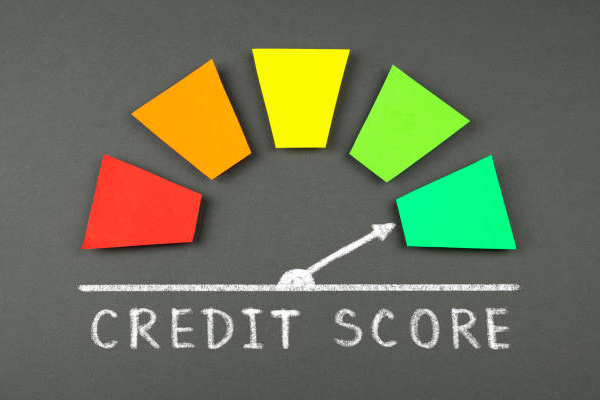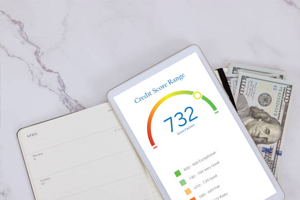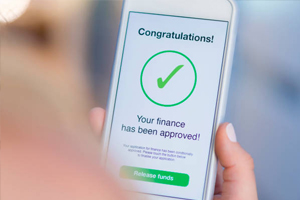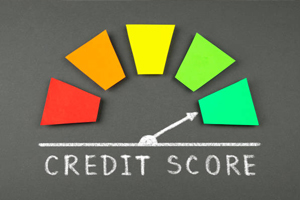How to Build Credit from Scratch: A Beginner's Guide
Unlock the secrets to successful credit building with our comprehensive guide Whether you re starting from scratch or looking to enhance your credit profile, discover actionable insights, success stories, and debunked myths Navigate dos and don ts, understand the impact of credit on financial opportunities, and find answers to FAQs Empower yourself with knowledge for a successful credit-building journey
Welcome to our comprehensive guide on building credit from scratch. Navigating the world of credit can be both exciting and challenging, especially for those starting with a limited or nonexistent credit history. In this guide, we'll delve into the essential aspects of building credit responsibly, debunk common myths, explore success stories, and provide actionable insights to help you achieve and maintain a healthy credit profile.
Understanding the importance of credit in today's financial landscape is crucial. From accessing better interest rates to realizing significant life goals like homeownership or entrepreneurship, a positive credit history opens doors to a myriad of opportunities. We'll break down the key components of a credit score, discuss the step-by-step process of building credit, and guide you on choosing the right credit-building tools tailored to your unique financial journey.
As we explore success stories of individuals who have successfully built credit from scratch, you'll gain valuable insights into the strategies and practices that contribute to a positive credit trajectory. Moreover, we'll address common mistakes to avoid and provide a comprehensive breakdown of how credit building impacts various financial opportunities, from lower interest rates to improved employment prospects.
Our guide will also debunk prevalent myths surrounding credit building, ensuring you have accurate information to make informed decisions. Whether you're a newcomer to credit or looking to enhance your existing credit profile, our dos and don'ts section will guide you through responsible credit practices, empowering you to make choices that positively impact your financial well-being.
Finally, we'll address frequently asked questions about building credit from scratch. From the misconception of carrying a balance to concerns about checking your credit score, we'll provide clear answers to common queries, offering guidance that aligns with the best practices for responsible credit management.
Embark on this credit-building journey with confidence, armed with knowledge and strategies that will help you achieve Topical Authority in the realm of credit. Whether you're aiming for a better credit score, exploring financial opportunities, or simply seeking to understand the nuances of credit building, this guide is designed to be your comprehensive companion on the path to credit success.

Understanding the Importance of Building Credit
The Role of Credit in Financial Health
Explore the fundamental role credit plays in an individual's overall financial health. Discuss how a positive credit history can open doors to various financial opportunities, including loans, credit cards, and favorable interest rates.
Credit as a Trust Indicator
Examine how credit serves as a trust indicator for lenders and financial institutions. Discuss how a good credit history reflects responsible financial behavior, instilling confidence in creditors when considering loan applications.
Impact on Major Life Events
Highlight the impact of credit on significant life events, such as buying a home, securing an auto loan, or even pursuing higher education. Discuss how a strong credit profile can positively influence the ability to achieve major life goals.
Employment and Credit Checks
Explore how credit checks are increasingly becoming a factor in employment decisions. Discuss the connection between responsible financial behavior, a positive credit history, and the potential impact on career opportunities.
Building a Foundation for Financial Stability
Discuss how building credit is a foundational step towards achieving financial stability. Explore the ways in which a solid credit history contributes to a more secure and predictable financial future.
Access to Lower Interest Rates
Examine the correlation between a strong credit profile and access to lower interest rates. Discuss how individuals with good credit can save money through reduced interest payments on loans and credit cards.
Creating Opportunities for Entrepreneurship
Highlight how building credit can create opportunities for entrepreneurship. Discuss the role of credit in securing business loans, establishing business credit, and fostering financial success for aspiring entrepreneurs.
Long-Term Financial Planning and Wealth Building
Discuss how building credit is an integral part of long-term financial planning and wealth building. Explore the ways in which a positive credit history contributes to building wealth and achieving financial goals over time.
Key Components of a Credit Score
1. Payment History
Explore the significance of payment history as a crucial component of a credit score. Discuss how on-time payments positively impact the score, while late payments or defaults can have adverse effects.
2. Credit Utilization Ratio
Examine the concept of the credit utilization ratio, highlighting the importance of maintaining a balance between credit usage and available credit limits. Discuss how a lower ratio contributes to a higher credit score.
3. Length of Credit History
Discuss the role of the length of credit history in determining a credit score. Explore how a longer credit history provides a more comprehensive view of an individual's financial behavior, positively influencing the score.
4. Types of Credit in Use
Explore the variety of credit types considered in a credit score, including credit cards, installment loans, and retail accounts. Discuss how having a diverse mix of credit types can positively impact the overall score.
5. New Credit Accounts
Examine the impact of opening new credit accounts on a credit score. Discuss how multiple recent inquiries or new accounts within a short period can potentially lower the score and the importance of managing new credit responsibly.
6. Public Records and Negative Items
Discuss the potential negative impact of public records, such as bankruptcies or tax liens, on a credit score. Highlight the importance of addressing and resolving these issues to improve credit health.
7. Credit Inquiries
Examine the role of credit inquiries in a credit score. Discuss the distinction between hard and soft inquiries and how multiple hard inquiries within a short time frame can impact the score.
8. Monitoring and Managing Credit Reports
Highlight the importance of regularly monitoring and managing credit reports. Discuss how individuals can check for inaccuracies, report discrepancies, and take proactive steps to maintain a healthy credit profile.
How to Start Building Credit: A Step-by-Step Guide
1. Understanding Your Current Credit Situation
Explore the importance of assessing your current credit situation. Discuss how obtaining a copy of your credit report and checking your credit score can provide valuable insights into your financial standing.
2. Establishing a Solid Financial Foundation
Discuss the foundational steps for building credit, including opening a bank account, creating a budget, and establishing responsible financial habits. Emphasize the role of stability in laying the groundwork for a positive credit journey.
3. Securing a Secured Credit Card
Examine the option of securing a secured credit card as a starting point for building credit. Discuss how a secured card, backed by a security deposit, can be a viable tool for establishing a credit history.
4. Exploring Credit Builder Loans
Discuss the concept of credit builder loans and their role in helping individuals build credit. Explore how these loans, designed for credit-building purposes, can be a structured way to demonstrate responsible borrowing behavior.
5. Becoming an Authorized User
Explore the option of becoming an authorized user on someone else's credit account. Discuss how this strategy can provide a boost to your credit history, especially if the primary account holder has a positive credit record.
6. Applying for a Starter Credit Card
Discuss the possibility of applying for a starter credit card designed for individuals with limited or no credit history. Explore the features of these cards and how they can serve as a stepping stone to more traditional credit options.
7. Making Timely Payments and Building a Positive History
Highlight the critical importance of making timely payments on all credit accounts. Discuss how consistent, on-time payments contribute to building a positive credit history and establishing a reputation as a reliable borrower.
8. Monitoring and Adjusting Your Credit Strategy
Emphasize the need for ongoing monitoring and adjustment of your credit-building strategy. Discuss how regularly reviewing your credit report, addressing any issues promptly, and adapting your approach can lead to long-term credit success.
Choosing the Right Credit Building Tools
1. Secured Credit Cards
Explore the features and benefits of secured credit cards as effective credit-building tools. Discuss how these cards, requiring a security deposit, provide a low-risk entry point for individuals with limited or no credit history.
2. Credit Builder Loans
Examine the concept of credit builder loans and their role in establishing credit. Discuss how these installment loans are structured to help individuals build credit gradually while fostering responsible borrowing habits.
3. Starter Credit Cards
Discuss the characteristics of starter credit cards designed for individuals with limited credit history. Explore how these cards offer entry-level options with features tailored to those in the early stages of building credit.
4. Authorized User Arrangements
Explore the strategy of becoming an authorized user on someone else's credit account. Discuss the potential benefits and risks associated with this approach, emphasizing the importance of trust and communication in such arrangements.
5. Retail Store Credit Cards
Discuss the considerations of using retail store credit cards as credit-building tools. Explore how these cards, often more accessible to individuals with limited credit, can contribute to establishing a positive credit history.
6. Credit Union Memberships
Examine the option of joining a credit union as a means of accessing credit-building tools. Discuss the advantages of credit union membership, including personalized financial guidance and credit products tailored to individual needs.
7. Online Lenders and Alternative Credit Products
Explore the landscape of online lenders and alternative credit products. Discuss how fintech solutions and innovative credit options cater to individuals seeking flexible and accessible tools for building credit.
8. Financial Counseling Services
Highlight the role of financial counseling services in the credit-building journey. Discuss how seeking advice from financial experts can provide personalized guidance on choosing the right credit-building tools and developing a sustainable credit strategy.
Common Mistakes to Avoid in Building Credit
1. Neglecting to Check Your Credit Report Regularly
Discuss the importance of regularly checking your credit report for inaccuracies and discrepancies. Emphasize how neglecting this step can result in errors that may negatively impact your credit score.
2. Making Late Payments or Missing Due Dates
Highlight the significant impact of late payments on your credit score. Discuss the importance of establishing a habit of making payments on time to avoid negative marks on your credit history.
3. Maxing Out Credit Cards
Examine the mistake of maxing out credit cards and its adverse effects on credit utilization ratios. Discuss the importance of maintaining a balance between credit usage and available credit limits for a healthier credit profile.
4. Closing Old Credit Accounts
Discuss the misconception of closing old credit accounts to improve credit. Explore how closing accounts can shorten your credit history and potentially lower your credit score, and provide alternatives for managing old accounts responsibly.
5. Applying for Multiple Credit Accounts Simultaneously
Examine the impact of applying for multiple credit accounts within a short time frame. Discuss how numerous hard inquiries can signal risk to lenders and potentially lower your credit score, and provide guidance on managing credit applications strategically.
6. Ignoring the Terms and Conditions of Credit Agreements
Highlight the mistake of overlooking the terms and conditions of credit agreements. Discuss the importance of thoroughly understanding the terms, interest rates, and fees associated with credit products to make informed and responsible financial decisions.
7. Neglecting Emergency Savings
Discuss the oversight of neglecting emergency savings as part of credit-building. Explore how having a financial safety net can prevent reliance on credit for unexpected expenses, contributing to a more sustainable credit journey.
8. Failing to Diversify Credit Types
Examine the mistake of relying solely on one type of credit. Discuss how diversifying credit types, such as having a mix of credit cards and installment loans, can positively impact your credit score by showcasing responsible credit management.
Impact of Credit Building on Financial Opportunities
1. Access to Lower Interest Rates
Explore how building credit positively impacts the interest rates offered on loans and credit cards. Discuss the correlation between a higher credit score and the ability to secure financing at lower interest rates, leading to potential cost savings over time.
2. Increased Approval Odds for Loans and Credit
Discuss how a positive credit history enhances the likelihood of loan and credit card approvals. Explore how lenders are more inclined to approve applications from individuals with a proven track record of responsible credit management.
3. Qualifying for Higher Credit Limits
Examine how a strong credit profile can lead to qualifying for higher credit limits on credit cards. Discuss the benefits of having access to increased credit limits while maintaining responsible credit usage.
4. Improved Terms on Auto Loans and Mortgages
Discuss the impact of credit building on securing favorable terms for major loans, such as auto loans and mortgages. Explore how individuals with good credit are more likely to receive lower interest rates and better terms on these significant financial commitments.
5. Opportunities for Business Financing
Explore how building personal credit opens doors to business financing opportunities. Discuss the connection between personal creditworthiness and the ability to secure loans and credit for business ventures, aiding in entrepreneurial pursuits.
6. Enhanced Rental and Housing Options
Discuss how a positive credit history can impact housing options. Explore how landlords and property managers often consider creditworthiness when evaluating rental applications, leading to increased choices for housing arrangements.
7. Favorable Terms on Personal Loans
Examine how credit building contributes to securing favorable terms on personal loans. Discuss how individuals with good credit are more likely to qualify for unsecured personal loans with lower interest rates and more favorable repayment terms.
8. Employment Opportunities and Background Checks
Highlight the impact of credit building on employment opportunities. Discuss how certain employers may conduct credit checks as part of the hiring process, and a positive credit history can contribute to a favorable impression during background checks.
Success Stories: Building Credit from Scratch
1. Overcoming Limited Credit History Challenges
Explore success stories of individuals who successfully built credit despite having limited or no credit history. Discuss the strategies they employed, such as securing a secured credit card or becoming an authorized user, to establish a positive credit foundation.
2. Gradual Improvement through Credit Builder Loans
Highlight stories of individuals who utilized credit builder loans to gradually improve their credit. Discuss how these individuals strategically managed installment loans to demonstrate responsible borrowing behavior and boost their credit scores over time.
3. Building Credit as a Stepping Stone to Financial Goals
Discuss success stories where individuals used credit building as a stepping stone to achieve broader financial goals. Explore how they leveraged their improved credit profiles to secure favorable terms on major loans, such as mortgages or business financing.
4. Turning Challenges into Opportunities
Share stories of overcoming credit challenges and turning them into opportunities. Discuss how individuals addressed negative marks on their credit reports, learned from financial setbacks, and successfully rebuilt their credit profiles with determination and resilience.
5. Entrepreneurial Success Fueled by Credit Building
Explore success stories of entrepreneurs whose journeys were fueled by effective credit building. Discuss how access to credit played a pivotal role in launching and growing their businesses, contributing to overall financial success.
6. Realizing Homeownership Dreams Through Credit Building
Highlight success stories of individuals who achieved homeownership dreams through credit building efforts. Discuss how improved credit scores opened doors to favorable mortgage terms, making homeownership a reality for those who once faced credit challenges.
7. Navigating Employment Success with a Positive Credit History
Discuss success stories where individuals experienced career advancement and employment opportunities due to a positive credit history. Explore how a strong credit profile positively influenced background checks and contributed to professional success.
8. Maintaining Financial Wellness Through Sustainable Credit Practices
Share stories of individuals who successfully maintained financial wellness through sustainable credit practices. Discuss how these individuals continued to make informed credit decisions, avoid common pitfalls, and secure long-term financial stability.
Building Credit Responsibly: Dos and Don'ts
1. Do Understand Your Credit Report and Score
Explore the importance of understanding your credit report and score. Discuss the dos of regularly checking your credit report, monitoring your score, and addressing any inaccuracies promptly for a clear picture of your credit health.
2. Don't Neglect Payment Deadlines
Highlight the importance of timely payments and the negative impact of missing due dates. Discuss the dos of setting up payment reminders, automating payments, and adopting responsible financial habits to ensure consistent on-time payments.
3. Do Diversify Your Credit Portfolio
Discuss the dos of diversifying your credit portfolio by having a mix of credit types. Explore how maintaining a healthy mix of credit cards and installment loans can positively impact your credit score by showcasing responsible credit management.
4. Don't Max Out Your Credit Cards
Examine the negative effects of maxing out credit cards on credit utilization ratios. Discuss the dos of keeping credit card balances low, paying off the full balance each month, and avoiding the temptation to use credit excessively for a healthier credit profile.
5. Do Manage Credit Inquiries Wisely
Discuss the dos of managing credit inquiries strategically. Explore how applying for credit mindfully, spacing out applications, and being selective about credit inquiries can help avoid unnecessary hits to your credit score.
6. Don't Close Old Credit Accounts
Explore the potential pitfalls of closing old credit accounts. Discuss the dos of keeping old accounts open, especially if they contribute positively to your credit history, to maintain a longer credit history and potentially boost your credit score.
7. Do Communicate with Creditors in Times of Financial Hardship
Discuss the dos of open communication with creditors during financial challenges. Explore how communicating proactively, exploring hardship programs, and seeking assistance can help prevent negative marks on your credit report during difficult times.
8. Don't Co-Sign Without Caution
Examine the potential risks of co-signing loans without caution. Discuss the dos of carefully considering the implications, understanding the responsibility involved, and establishing clear communication with the primary borrower before agreeing to co-sign any financial arrangement.
Debunking Myths About Building Credit
1. Myth: You Need to Carry a Balance to Build Credit
Debunk the misconception that carrying a balance is necessary to build credit. Discuss the reality that responsible credit use, timely payments, and a low credit utilization ratio contribute more to a positive credit history than carrying debt from month to month.
2. Myth: Closing Credit Cards Improves Your Credit Score
Examine the myth that closing credit cards can improve your credit score. Discuss the truth that closing accounts may shorten your credit history, potentially lowering your score, and explore alternatives for managing unused credit cards responsibly.
3. Myth: Checking Your Credit Hurts Your Score
Debunk the myth that checking your credit negatively impacts your score. Discuss the difference between soft and hard inquiries, emphasizing that checking your own credit (soft inquiry) does not harm your score, while multiple hard inquiries within a short time frame can have a minor impact.
4. Myth: All Debts are Equally Harmful to Your Credit
Discuss the myth that all debts have the same impact on your credit. Explore the reality that different types of debts, such as credit card debt versus installment loans, may affect your credit score differently, and provide insights on managing various debt types responsibly.
5. Myth: Closing an Account Removes it from Your Credit Report
Examine the misconception that closing an account removes it from your credit report. Discuss the truth that closed accounts, whether positive or negative, may continue to appear on your credit report for a certain period, influencing your credit history.
6. Myth: Building Credit Takes a Long Time
Debunk the myth that building credit is a lengthy process. Discuss how consistent, responsible credit management practices can lead to noticeable improvements in a relatively short time, dispelling the notion that credit building is an inherently slow journey.
7. Myth: Income Affects Your Credit Score
Discuss the myth that your income directly influences your credit score. Debunk this misconception by emphasizing that while income is not a factor in calculating credit scores, it plays a role in your ability to manage credit responsibly and avoid excessive debt.
8. Myth: Closing Unused Credit Cards is Always a Good Idea
Explore the myth that closing unused credit cards is a universally beneficial practice. Discuss the potential negative impact on your credit score and credit utilization ratio, emphasizing that strategic management of unused cards may be a more prudent approach.
FAQs about Building Credit from Scratch
Q1. Is it true that carrying a balance on my credit card helps build credit faster?
A1. No, carrying a balance is not necessary to build credit. In fact, it's advisable to pay your credit card balance in full each month to demonstrate responsible credit use and avoid unnecessary interest charges.
Q2. Will checking my credit score frequently negatively impact my credit?
A2. No, checking your own credit score (soft inquiry) does not harm your credit. However, multiple hard inquiries within a short time frame, such as applying for several loans simultaneously, can have a minor impact on your score.
Q3. Can closing unused credit cards improve my credit score?
A3. Closing unused credit cards may not always improve your credit score. In some cases, it can even lower your score by affecting your credit utilization ratio. Consider keeping unused cards open or closing them strategically based on your overall credit strategy.
Q4. How long does it take to build credit from scratch?
A4. The time it takes to build credit varies. Consistent, responsible credit management practices can lead to improvements in a relatively short time. However, the exact duration depends on individual financial habits and the types of credit used.
Q5. Does my income affect my credit score?
A5. No, your income does not directly impact your credit score. While your income is not a factor in credit score calculations, it plays a role in your ability to manage credit responsibly and avoid excessive debt, which indirectly affects your creditworthiness.










